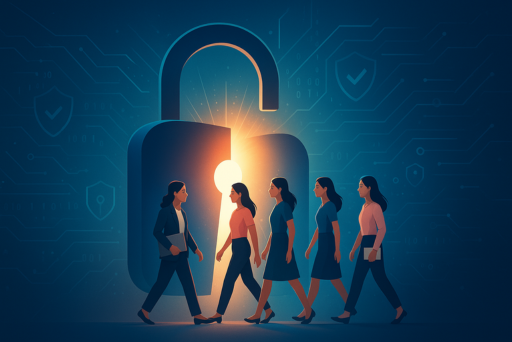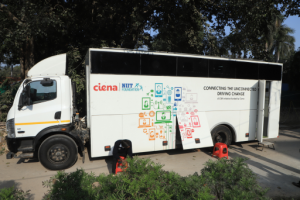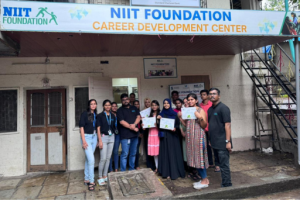The work paradigm in India has been changing rapidly, particularly with the younger generation, which is fast moving towards hybrid and remote working options. As these developments gain momentum, it becomes increasingly important to consider their implications for skills, education, and employment.
The Impact of Hybrid and Remote Work on Skills
Youth face a significant challenge in evolving the skills necessary to succeed in a blended work world. Based on research, 94% of organizations are now permitting employees increased flexibility in terms of work location and cadence, requiring new capability in terms of adaptability and self-direction. Key skills include:
- Digital Literacy: Proficiency in using various digital tools is essential. Given the adoption of remote work, understanding such platforms (e.g., Zoom, Slack, etc.) and project management software is essential.
- Collaboration Skills: With teams increasingly moving apart, working together well across distances is becoming increasingly important. This encompasses, for example, being able to communicate effectively and remotely and coordinate a team’s work.
- Emotional Intelligence: Emotional understanding, regulation, and empathy are becoming more urgent in online environments where non-verbal cues may be difficult to observe.
70% of hybrid workers have already modified their meeting practices in order to achieve a desired outcome, as compared to 49% of workers working onsite. This evolution is suggestive of an increasing demand for strategic and adaptable thinking itself.
Educational Adaptations
To meet the changing demands of these new market needs, university courses and corporate training have been adapting their syllabuses to equip students with the necessary skills for adaptable work environments. Many institutions are integrating real-world projects, emphasizing experiential learning through internships and projects that recreate hybrid workflows. Soft Skills Training has also become crucial as focusing on communication, collaboration, and conflict resolution is slowly becoming the norm in these educational environments. This helps students navigate the complexities of remote collaboration.
Corporate training programs are also evolving to provide digital tools and emotional intelligence-focused workshops. For instance, companies like Microsoft have implemented employee-led flexibility policies and these policies support the creation of particular skills, tailoring to the employee’s needs.
The Role of Digital Communication and Collaboration Tools
Digital communication tools are leading this workplace transformation. A recent report showed that more than 60% of employers plan to increase budgets for virtual collaboration tools, like Zoom etc. These tools facilitate communication and enhance productivity by enabling seamless project management across teams.
Moreover, the rise of coworking spaces reflects this trend. By 2030, it’s projected that 30% of all office space will be flexible, catering to the increasing demand for adaptable work solutions. This change enables youth to select workspaces that work best for them—an open-plan coworking space or a cosy home office.
In this dynamic environment, organizations such as NIIT Foundation have an essential function in reducing the digital gap and preparing youth to cope with hybrid and remote work environments. By undertaking programmes that teach requisite digital literacy and soft skills, NIIT Foundation makes it possible for people from underprivileged backgrounds to develop the skills to use the best of modern tools and platforms, by providing an online channel which is called LMS or Learning Management System. Their programs not only enhance technical expertise but also foster collaboration, adaptability, and confidence, ensuring that participants are equipped to thrive in today’s dynamic workspaces.
As they move forward, youth will face the future of hybridized, remote workspaces. They will need to develop a rich set of skills that include digital knowledge, networking skills, and emotional intelligence. Educational facilities and corporate training courses are adjusting their curriculum with an eye toward these new realities. By fostering a holistic approach that combines technical expertise and these critical life skills, youth will surely thrive in this evolving workspace.
















